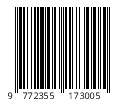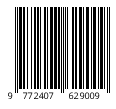- Focus and Scope
- Section Policies
- Peer Review Process
- Publication Frequency
- Open Access Policy
- Archiving
- Plagiarism Policy
Focus and Scope
The Handayani PGSD FIP UNIMED Journal aims to become a scientific platform that presents various aspects of education from various perspectives. This journal covers a variety of topics relevant to the development and improvement of the education system, policies, learning methods, as well as current issues in the world of education. The primary focus of this journal includes, but is not limited to, the following topics:
1. Innovation in Learning
Assessment of the latest approaches, methods and technologies in learning to increase the effectiveness of the educational process.
2. Education Policy
Analysis of education policies at the national, regional and local levels, as well as their impact on the education system and students.
3. Curriculum Development
Research on designing, implementing, and evaluating curricula according to the needs and challenges of today's education.
4. Educational Evaluation
Study of the assessment and evaluation of educational performance, both at the individual and institutional levels.
5. Inclusive Education
Articles discussing inclusive education to ensure learning opportunities for all individuals, including students with special needs.
6. Teacher Professional Development
Research and review of professional development programs to enhance teacher competence in teaching and supporting learners.
7. Character Education
Articles that discuss the role of education in shaping the character, morals and positive values of students.
8. Study of Educational Psychology
Study of psychological aspects in the context of education, such as learning motivation, emotional intelligence, and social support.
9. Technology in Education
Research on the use of information and communication technology in the learning process and educational administration.
10. Education and Community Development
An analysis of the contribution of education in community development and achieving sustainable development goals.
The Handayani Journal accepts original research articles, literature reviews, and conceptual contributions from academics, researchers, educational practitioners, and other related parties. All articles will go through a rigorous review process by relevant experts to ensure the quality and accuracy of scientific contributions. This journal is committed to presenting the latest, impactful, and relevant knowledge for the development of the world of education and contributing to the advancement of society at large.
Section Policies
Articles
Peer Review Process
1. Peer Review Principle
The Handayani PGSD FIP UNIMED Journal adopts an independent and anonymous peer review system. Each manuscript will be assessed by reviewers who have expertise in a field relevant to the topic of the manuscript.
2. Assessment Criteria
Reviewers will assess the manuscript based on the quality of research methods, originality, relevance of contributions in the field of education, proper data analysis, clarity of presentation, and potential impact on educational development.
3. Openness and Transparency
The peer review process will be carried out in a transparent manner, but the identities of the authors and reviewers will be kept confidential (double-blind peer review). The review report will not be leaked or distributed without written permission from the author.
4. Speed Rating
We commit to complete the peer review process within 4-6 weeks after receipt of the manuscript. If any extension of time is required, the author will be notified in a timely manner.
5. Conflict of Interest Policy
Reviewers are required to inform editors of potential conflicts of interest or relationships with authors that could affect their independence in evaluating manuscripts.
6. Peer Review Ethics
Reviewers are expected to maintain the confidentiality of the manuscript being reviewed and avoid using information from the manuscript for personal gain. The presence of plagiarism and attempts at data manipulation must be reported immediately.
7. Action on the Review Report
The editor will submit a review report to the author with detailed suggestions and criticisms from the reviewers. Authors are asked to make revisions based on the report or explain their reasons if they choose not to revise.
8. Review Back
If the authors feel there is significant injustice or discrepancy in the review report, they can request another review by submitting strong arguments to the editor.
9. Improved Peer Review Quality
We are committed to continuously improving the quality of the peer review process by listening to feedback from authors and reviewers. This policy will be reviewed periodically to adapt to developments in the scientific publishing world.
10. The Role of the Editor
Editors are responsible for coordinating the peer review process and ensuring that assessments are conducted fairly and efficiently.
Publication Frequency
The Handayani Journal publishes articles twice a year, namely in June and December
Open Access Policy

This journal provides direct open access to its content on the principle that making research freely available to the public supports greater global exchange of knowledge.
Archiving
The journal uses the LOCKSS system to create a distributed filing system among participating libraries and allows those libraries to create permanent archives of the journal for preservation and restoration purposes.
Plagiarism Policy
The Editorial Board of Handayani PGSD FIP UNIMED Journal has realized that plagiarism is an unacceptable act. Therefore, we have authorized the following policy that stipulates specific actions (penalties) against cases of identification of plagiarism or similarity in articles submitted for publication in the Handayani PGSD FIP UNIMED Journal. Handayani PGSD FIP UNIMED Journal will use Turnitin software to check the originality of the article manuscript and compare it with the final version of the article ready for publication. We allow up to 24% similarity in submitted papers. If a similarity index of more than 24% is found, the article will be returned to the author for correction and resubmission.
Each paper must be original, not previously published, and not submitted for publication elsewhere. Any material taken directly from other sources must be clearly identified through indentation, quotation marks, and indication of the source.
If any text exceeds fair use standards (which we define as more than two or three sentences or the equivalent) or if any graphic material is taken from another source, then permission from the copyright holder should be obtained, where possible, along with an indication of the original source.
When plagiarism is detected, the Editor-in-Chief will review the paper and will take appropriate action according to the level of plagiarism identified, in accordance with the following guidelines:
Level of Plagiarism
Mild Plagiarism:
This involves plagiarizing a small number of sentences or short paragraphs from another manuscript without taking significant data or ideas from another paper or publication.
Action: The author will be given a warning and asked to correct the manuscript and cite the original source correctly.
Moderate Plagiarism:
This involves plagiarizing significant data, paragraphs, or sentences from an article without including appropriate citations from the original source.
Action: The submitted article will be automatically rejected.
Severe Plagiarism:
This includes plagiarism that involves a large part of the article and includes reproduction of original results (data, formulations, equations, laws, statements, etc.), ideas, and methods that have been presented in other publications.
Action: The paper will be automatically rejected and the author will be prohibited from submitting further articles to the journal."











